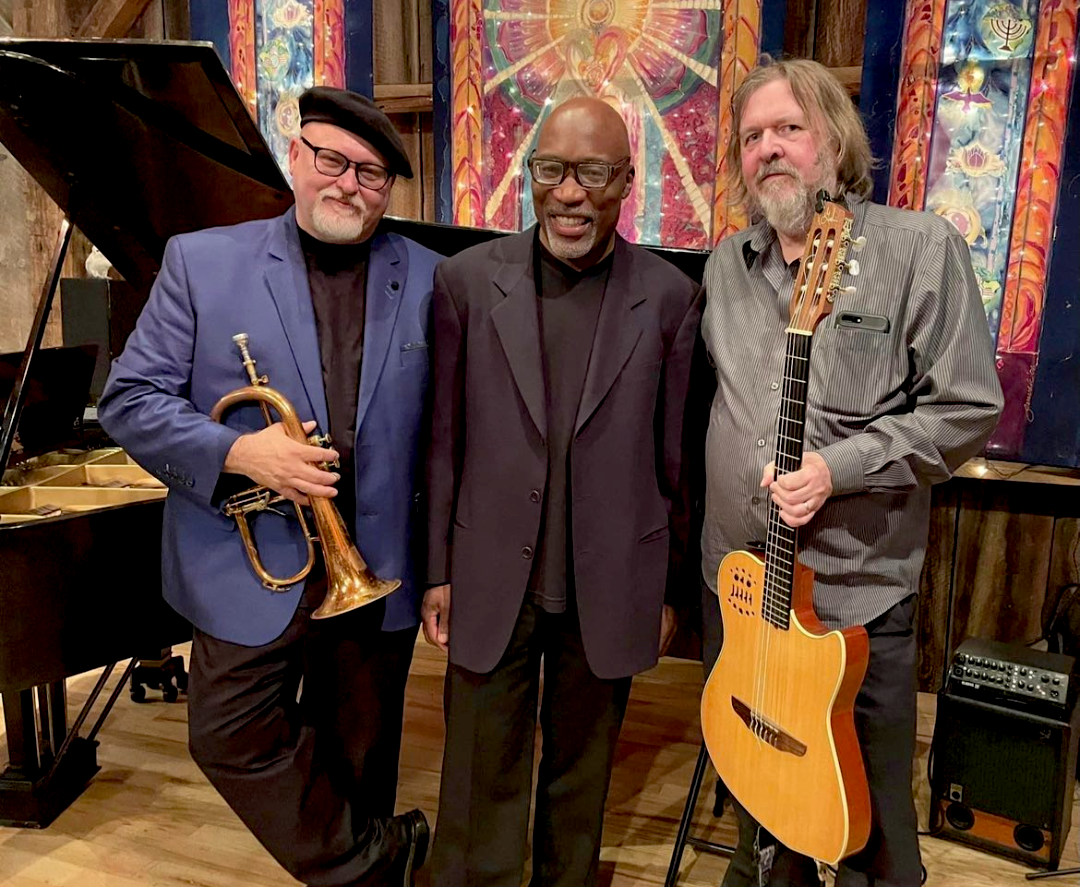
This year I resolve to work smarter, not harder.
I plan to pace myself, take my time, and do things right.
I’ll talk less, walk more, and appreciate every moment.
1. Sustain my daily routine at home.
- Wake up before sunrise. Walk, stretch, make bed.
- Handle all business before noon; reserve afternoons for music.
- Practice flugelhorn long tones and rudiments. Prepare repertoire.
- Read, study, walk dogs, run errands, and finish chores before daily meal.
- On gig nights: allow extra time, drive carefully, arrive early, and read my book.
- On free nights: enjoy television, movies, music, and podcasts.
- Before bed, put the day up for review and plan tomorrow.
- Practice deep breathing and mindfulness meditation.
- Sleep soundly for six hours or more.
2. Make the most of every road trip.
- Service van and replenish supplies before every tour.
- Plan ahead. Research each day’s driving route, meal, and nature walk.
- Drive no more than six hours daily. Rest every two hours.
- Schedule one (but no more than two) engagements each day.
- Cut costs to increase margins. Overnight with Harvest Hosts when possible.
- Maintain personal hygiene and stick to a regular sleep schedule.
- Recharge devices and handle business each morning.
- Plan breaks along the way for visits with friends.
3. Prioritize mental well-being.
- Relax, smile, and laugh. Choose to be in a good mood.
- Limit exposure to negative people and influences.
- Watch no more than 30 minutes of daily news.
- Spend no more than 10 minutes on social media.
- Get outdoors. Appreciate nature. Play with dogs.
- Schedule seasonal solitude retreats and staycations.
- Make time for real conversations with friends.
- Be of service. Offer help and follow through.
- Avoid complaining, even to myself.
- Stay humble, hopeful, and grateful.
- Memento mori. Amor fati.
4. Prioritize physical health.
- Enjoy food and drink in moderation.
- Limit consumption of caffeine and alcohol.
- Follow OMAD and Warrior Diet protocols.
- Visit the doctor and dentist regularly.
5. Maintain financial discipline.
- Boost contingency fund by 20%.
- Increase retirement savings by 10%.
- Pay off 100% of consumer debt.
- Protect home and credit rating.
6. Shut up and listen!
- Hold few opinions and express even fewer.
- Listen more. Speak less. Two ears, one mouth!
- Remain curious, interested, and open-minded. Become laconic.
- When possible, try to make the point in one sentence, without preamble.
- In conversation, pause to think, then choose words carefully before speaking.
- When performing, settle down. Be a supportive listener, not a cheerleader.
- Rather than reacting impulsively, respond thoughtfully.






















































